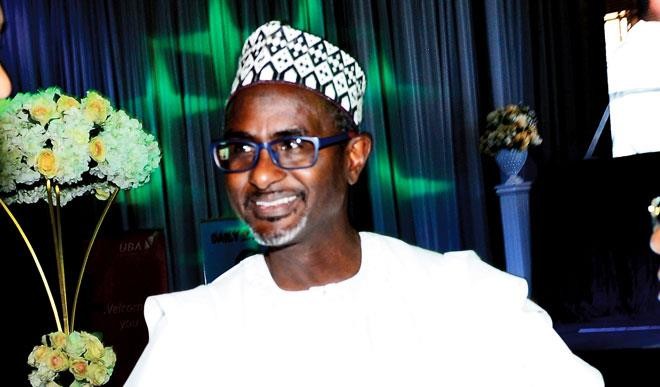Welcome, an Ombudsman for newspapers
In a move aimed at bringing sanity and credibility to the practice of journalism in the country, the Nigeria Press Organisation, on April 3, inaugurated a nine-member National Media Complaints Commission. The commission, made up of veteran journalists, lawyers, politicians and members of civil society, will receive and give redress on complaints from any member […]

The chairman of Media Trust Limited, publishers of Daily Trust, Malam Kabiru Yusuf
In a move aimed at bringing sanity and credibility to the practice of journalism in the country, the Nigeria Press Organisation, on April 3, inaugurated a nine-member National Media Complaints Commission.
The commission, made up of veteran journalists, lawyers, politicians and members of civil society, will receive and give redress on complaints from any member of the public on reports by any newspaper that he or she feels are not fair to him.
The NPO comprises the Newspaper Proprietors Association of Nigeria (NPAN), Nigeria Guild of Editors (NGE), Nigeria Union of Journalists (NUJ), Broadcasting Organisation of Nigeria (BON) and the Guild of Corporate Online Publishers (GOCOP).
In the past few years, there has been a major opposition by the NPO against the government’s moves to introduce legislation to regulate the affairs of newspapers in the country through an amendment to the Nigeria Press Council Act. This issue is now before the Supreme Court. The NPO had argued that self-regulation rather than government legislation is what is needed for better operation of the newspaper business, as it will guarantee press freedom while providing an opportunity for redress to those offended by any newspaper report. It also argued that it was important for those who are conversant with the job and the challenges that come with it to regulate it.
British Airways rewards customer at OnBusiness meeting
Adamawa: Reasons behind Ari’s declaration should be exposed – Ex-INEC commissioner
The NPO has every reason to be wary of the government’s move, given attempts to bring in other legislation, such as the social media bill, to regulate media reporting on social media. On many occasions, government officials had resorted to crude methods to punish journalists and newspapers, whose reports they felt, went against them. In any case, the Nigerian media wanted to avoid the repeat of laws such as Decree 4 which curtailed the free activities of the media in the early 80s.
According to the President of NPO, Malam Kabir Yusuf, the Ombudsman will call erring newspapers to order. He said the commission “is expected to serve as an independent forum for resolving complaints about the press quickly, fairly, and free of charge; maintain a high standard of Nigerian journalism and journalists’ ethics and defend the freedom of the press and the right of the people to know.
“In deference to the dictum that journalism is too important to be left to the journalists, we have opted for a mechanism of co-regulation with the help of other actors in the civil society, especially the bar and non-media NGOs,’’ he said.
Yusuf, who is the Chairman of Trust Media Group, noted that radio and television are already regulated through the National Broadcasting Commission, unlike the print, which is the oldest, and online which is the newest.
We welcome the setting up of this commission, especially given that it involved all stakeholders directly affected. It will, therefore, give confidence that its decision will be respected by all members of the organisation.
Again, this mechanism will definitely provide a faster and cheaper means of seeking redress for complainants.
In the past few years, journalism in Nigeria has been on trial due to reckless reports published by some news platforms without regard to professionalism or ethics. This is further made worse with the entrance of online news outlets largely run by non-professionals.
We are particularly confident that the commission will discharge its duties effectively, given the backgrounds of its members. We appeal to the members to draw from their wealth of experience to ensure that the commission meets the objectives for which it was set up.
In discharging this important task, we urge the members to be impartial and ensure fairness and justice in arriving at their decisions so as to give confidence to members of the public. They should bear in mind that their decisions would be closely watched and assessed and would determine any future attempt by government to interfere with the freedom of the press.
Daily Trust also calls on members of the NPO to cooperate with the commission by abiding by its decisions and to make redress where required. They must always be mindful of the fact that the commission was created by them, and it will determine whether the NPO is taken seriously or not in its argument against government regulation of newspapers, which we all oppose.
Indeed, the commission stands between freeing newspapers of government regulation and setting a precedent for other professions. We also call on the government to give this commission a chance by providing all necessary support and suspending any planned regulation.
Daily Trust believes that the commission will prove all doubters wrong and Nigerians will see a more responsible and accountable press.
